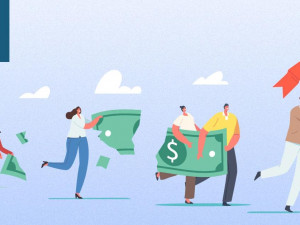
Economy 97.5% of pre-Covid level
Morning mid-market rates – The majors
25th June: Highlights
- BoE – Inflation to hit 3%
- Durable Goods orders point to further rise in inflation
- Euro facing a bearish period despite the recovery taking hold
Reticence to unlock has cost UK prime place
As has happened throughout the Pandemic, there are two sides to the argument.
The difference this time is that the scientific community has retired to the sidelines. The cautious route that the scientific community recommended has prevailed, although there is no way of knowing if they are correct.
The fact that cases are rising is a fair assumption of the country’s position given the amount of reopening’s that have taken place. However, deaths remain negligible compared to the height of the Pandemic, while hospital admissions remain at the bottom end of the scale.
The Bank of England’s Monetary Policy Committee met yesterday and in tune with other major economies, decided that stimulus remains more important than tackling rising inflation.
They left both the level of bond purchases and interest rates unchanged.
There is a concern that something is going to have to give.; Rising inflation could cut the nascent recovery in various economies off at the knees, but the feeling is that more stimulus will solve that issue.
The crystal ball viewers are finding it impossible to decide between inflation and growth as the most important driver for the global economy.
If inflation is left to its own devices, it is going to be more difficult to bring back under control. That could lead to interest rates rising far more quickly.
It is impossible, since this is an unprecedented situation, to say what is going to come first. Will inflation force the Central banks into action, or will they merely ignore it until they are confident that the recovery is robust.
Following the Bank of England’s non-event, the pound was mixed. It traded between 1.3986 and 1.3885, closing at 1.3933.
Considering your next transfer? Log in to compare live quotes today.
Initial jobless claims now well below 500K
The employment market has bottomed out and fewer jobs are disappearing. Next week’s NFP data is likely to be heavily favoured to the upside as bottlenecks that have grown in that area of the economy dissipate.
Workers are now seeing that jobs need to be grabbed while they are available, although if the President authorizes another targeted stimulus package, there may be a slightly bumpy road ahead for employers.
With inflation growing and constantly labelled as transitory, there may be a lull in spending as consumers draw in the purse strings until the market becomes a little more rational.
The shortage of raw materials and components has hit several manufacturing businesses. That is another contributory factor to the transitory nature of inflation.
Regional Fed Presidents continue to contribute to the debate. Yesterday, New York Fed President John Williams commented that he didn’t feel that the rate of unemployment has not yet reached its maximum potential and therefore the discussion about raising interest rates is a subject for another time.
It is interesting that Williams talked of rates returning to normal levels. Given what the new normal will look like, who is to say that leaving rates unchanged may see inflation fall naturally.
There is a discussion still to be had about the reason inflation has risen so far. In the U.S. Low interest rates are blamed for the rise in inflation to 5% but that is ignoring the unprecedented level of stimulus that has been injected.
It may be that as the stimulus finds its way through the system, that it may be that higher rates become superfluous.
Yesterday, the dollar index traded in a narrow range and finished almost unchanged on the day at 91.80.
Lack of independence, a major factor in weaker euro
However, there are several issues facing the Union that will need to be solved before the region can be considered back to full strength.
The first is the fracture that has existed for some time between the haves and have-nots. It is most likely that there will be a tacit agreement reached where it is accepted that the Golden Rule still exists. That is, the ones with the gold make the rules.
In the near term, there is growing concern about the spread of the Delta or Indian variant of the virus across the mainland. It had been largely contained in the UK but is now being seen more and across Europe.
Italy has this week announced plans to reduce the level of bad loans that are hampering bank’s ability to both grow their balance sheets and lend to creditworthy customers.
They have latterly discovered securitization. They are issuing deeply discounted bonds that are securitized by loans that have been non-performing. The purchasers face a gamble on an economic recovery, in which the loans will increase in value. This is a pet project of Mario Draghi, who clearly believes that something has to be done.
It is doubtful that the ECB will be allowed to permit inflation to simply increase without any form of control or a safety next.
Inflation paranoia will continue to afflict the economy and the comments recently that the economy must be protected from inflation no matter the cost will have resonated in Athens, Rome Lisbon, and Madrid.
The euro remains dependent upon the machinations of the dollar.
Once the global economy has recovered from the Pandemic it may be time for a conversation about the makeup of the basket, but for now, the euro is little more than the dollar’s mirror image.
Yesterday, it rallied a little, but with no chance of testing resistance at 1.20. It reached a high of 1.1956 and closed at 1.1932.

About Alan Hill
Alan has been involved in the FX market for more than 25 years and brings a wealth of experience to his content. His knowledge has been gained while trading through some of the most volatile periods of recent history. His commentary relies on an understanding of past events and how they will affect future market performance.”



